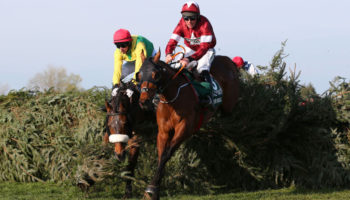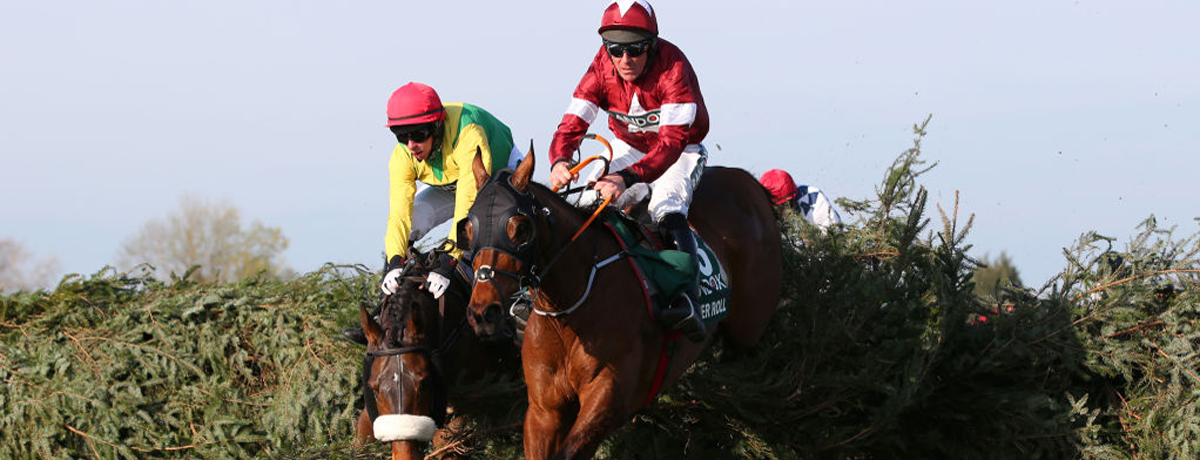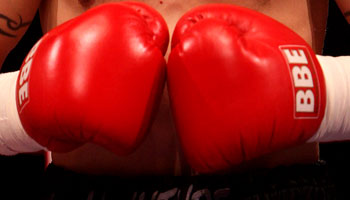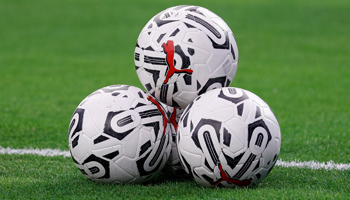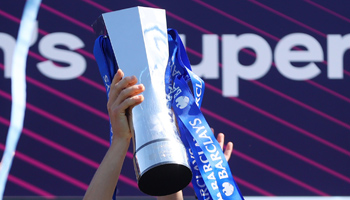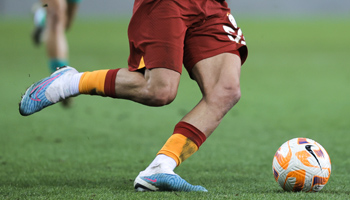The Grand National is one of the most popular events on the UK sporting calendar, with up to 40 horses going head-to-head at the famous Aintree racecourse.
We have picked out the key Grand National trends from the previous 20 renewals ahead of this year’s Liverpool showpiece on Saturday.
Where could the race be won and lost?
Grand National runners complete two laps of Aintree, making 30 jumps over 16 different fences. Obstacles one to 14 are jumped twice, with The Chair and The Water Jump cleared once apiece.
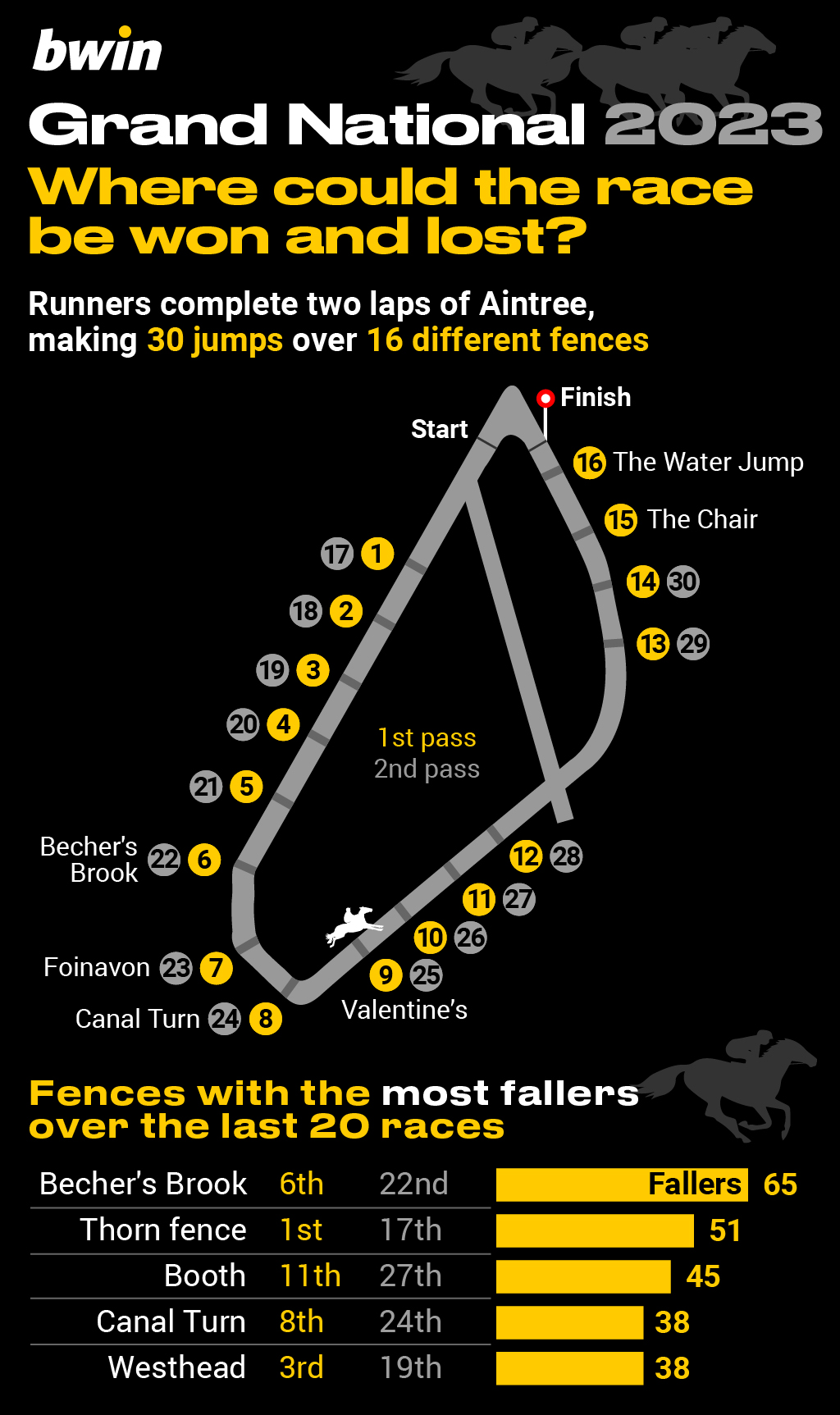
As a result of the relentlessly difficult course, more than half of participants have failed to finish in 19 of the past 20 races.
In total, 487 of 795 (61 per cent) starters have fallen, pulled up, unseated their rider or refused a fence.
Becher’s Brook – with a steep drop of almost seven feet on landing – is statistically the toughest obstacle to negotiate, ahead of the Thorn fence, which is the very first on the course.
How do favourites perform?
Despite the chaotic nature of the Grand National, 12 of the last 20 winners were priced as one of the top 10 favourites before the race.
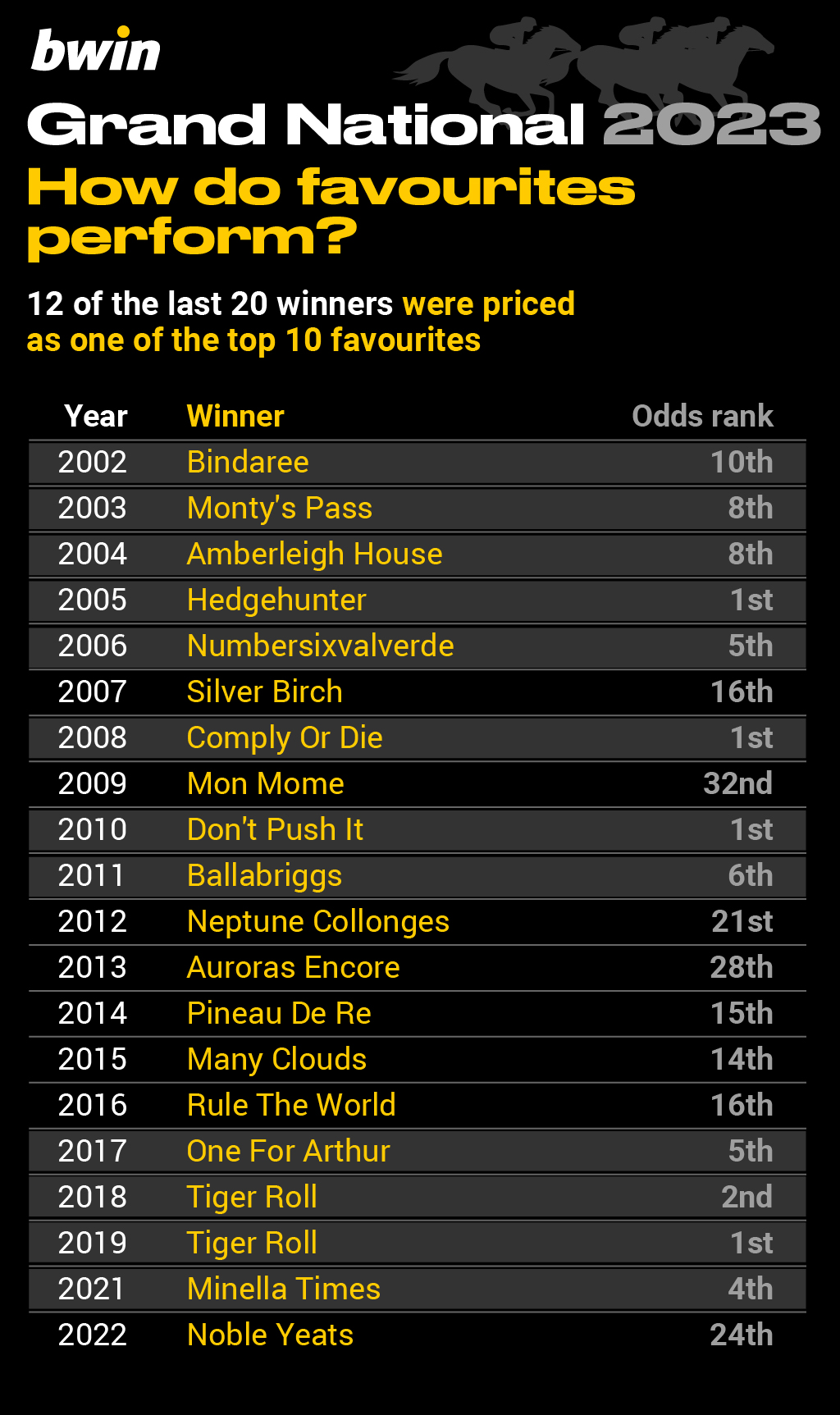
As might be expected, a horse’s likelihood of finishing in the top four falls in line with its pre-race odds.
Two-thirds of participants priced at 8/1 or shorter – generally the first or second favourites – have gone on to finish the race, with nearly four in 10 managing to finish in the top four.
That said, Mon Mome won as a 100/1 shot in 2009, while Philson Run (2007), Vics Canvas (2016) and Balko Des Flos (2021) have all placed after being priced in triple digits beforehand.
Who has the best record?
More than 98 per cent of Grand National runners are trained in Great Britain or Ireland, with Irish stables having the better success rate in terms of finishing in the top four and completing the course.
While the last 20 race wins have been evenly split, Irish trainers have tasted victory in five of the most recent six.
Ted Walsh has three podium finishes from 10 starts – the best success rate among active trainers.
Fellow Irishman Gordon Elliott has trained the most winners since 2002, with his three including two back-to-back for Tiger Roll in 2018 and 2019.
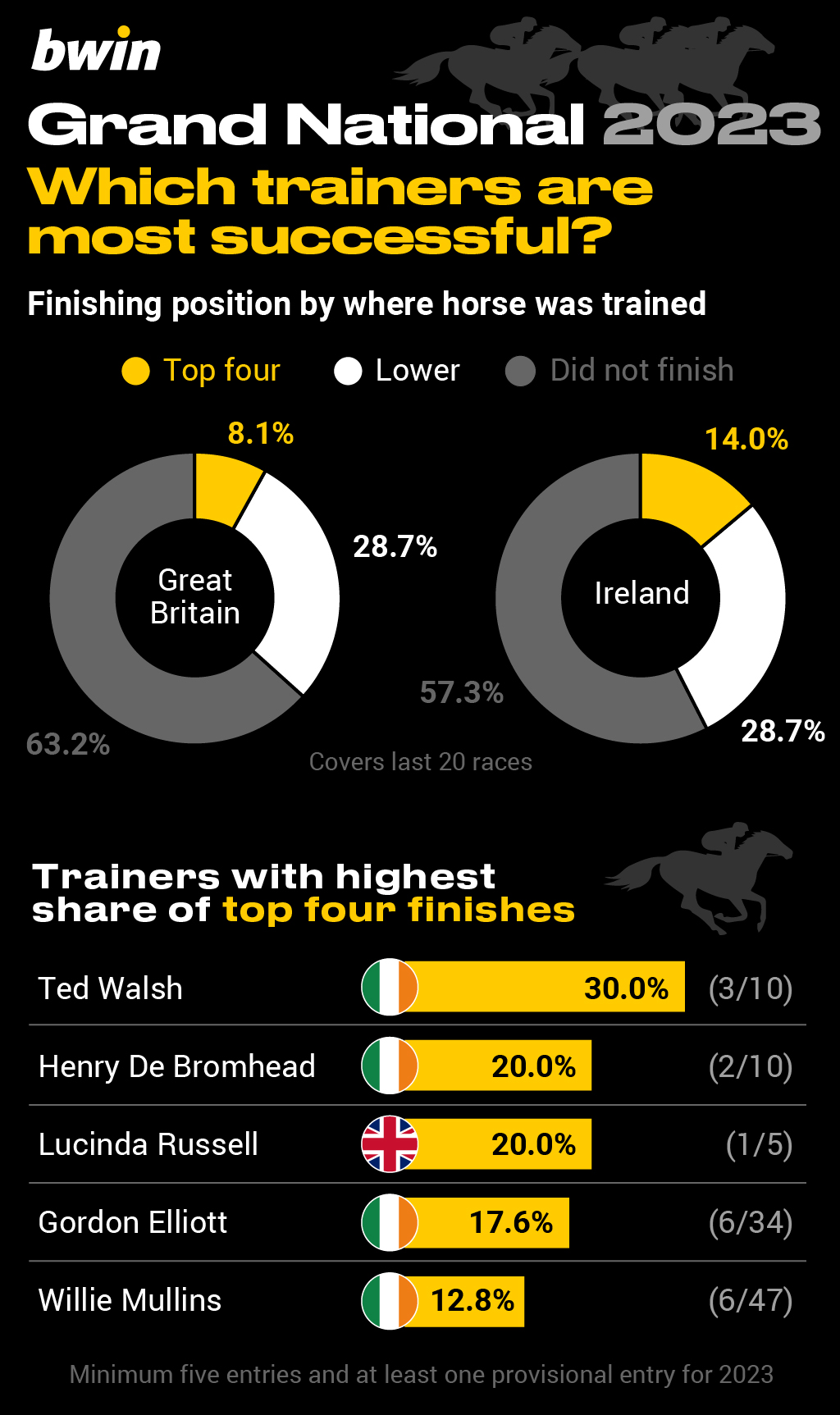
Among jockeys, Jack Kennedy has shown consistency by twice finishing third – on Bless the Wings in 2018 and Delta Work in 2022 – and only once failing to finish in five starts. The 23-year-old is on the comeback trail after breaking his leg in January and is hoping to team up with Elliott’s Delta Work once again this year.
Elliott has also forged a successful partnership with Davy Russell, who rode Tiger Roll to twin victories, which were sandwiched in between wins for regular duos Derek Fox and Lucinda Russell (2017), and Rachael Blackmore and Henry De Bromhead (2021).
How much does experience matter?
With 30 fences to clear and more than four miles to cover, the Grand National requires a mix of agility and endurance.
Eight-year-olds have been most likely to finish in the top four since 2002, while – apart from last year’s winner Noble Yeats – horses aged seven or under have struggled.
Aintree experience gives runners a slight advantage, with a higher percentage of returning horses managing to place and complete the course compared with first-timers.
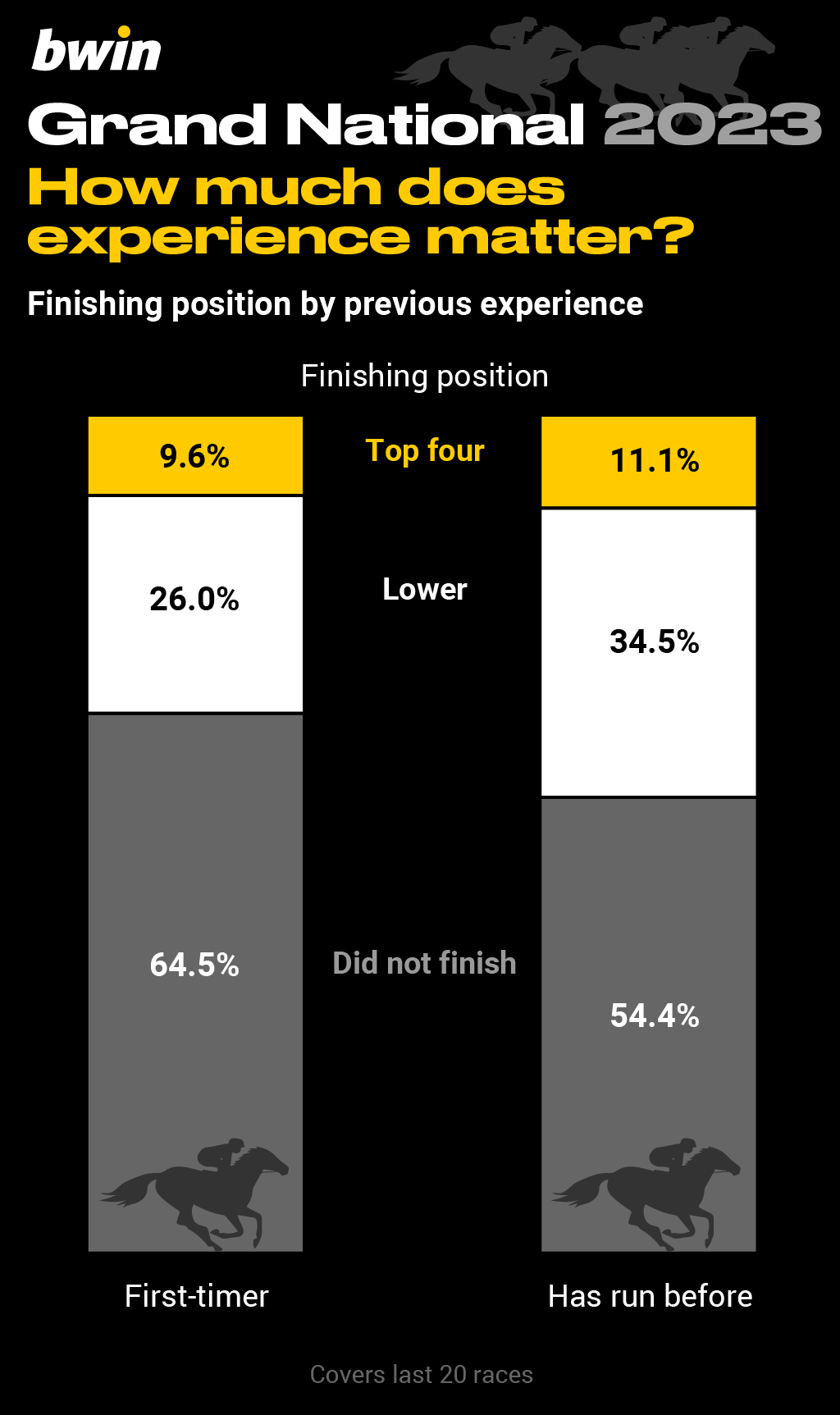
This bodes well for the 2022 podium finishers – Noble Yeats, Any Second Now and Delta Work – who are all set to run again in Merseyside this year.
Who has the jumping pedigree?
While there is no guarantee of success at the Grand National, past winners have generally done well in similar races before the big event.
In fact, 17 of the last 20 victors had at least one previous win in a steeplechase measuring three miles or more in distance.
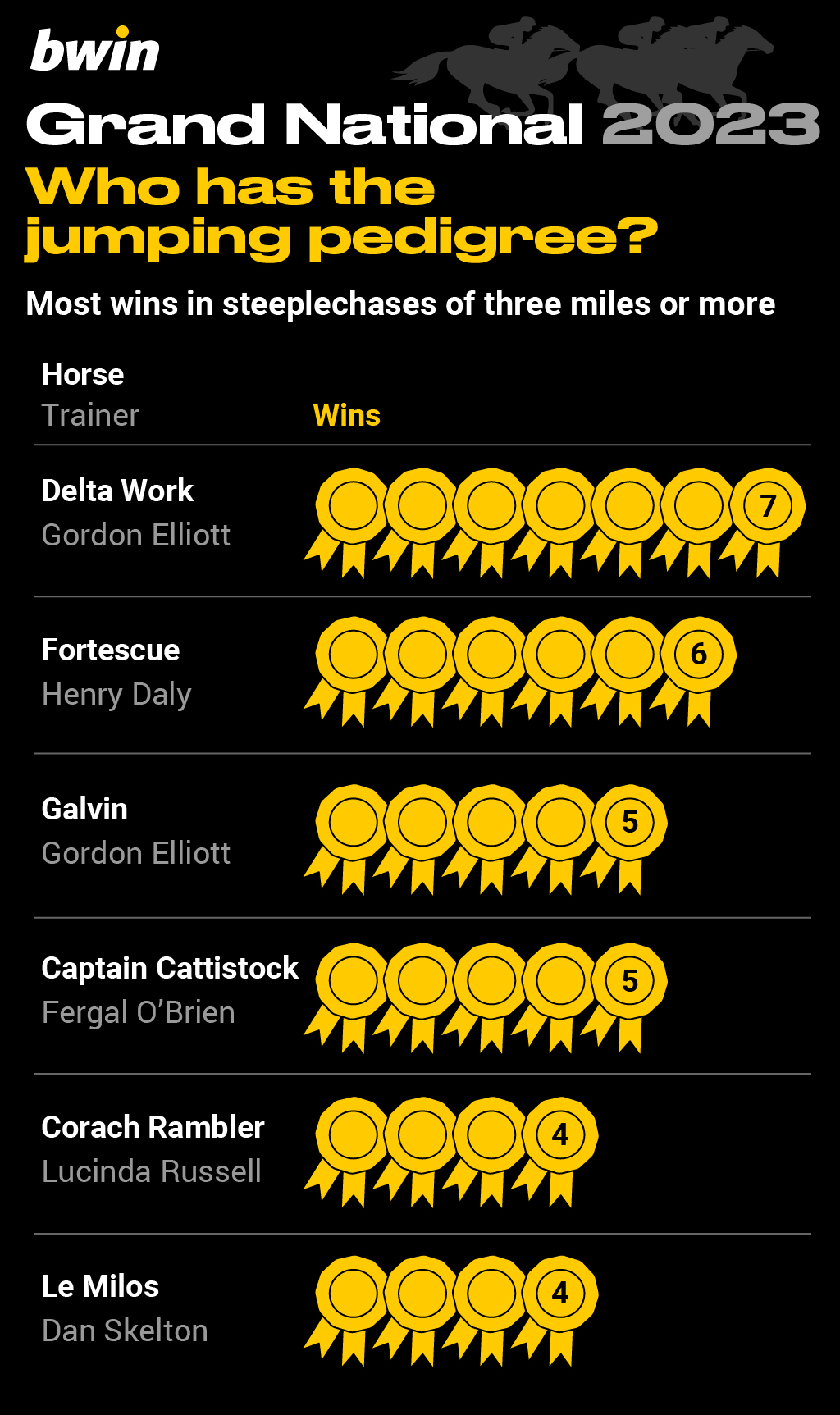
Among 2023 runners, Elliott’s 10-year-old Delta Work is the most proven, with seven wins in lengthy steeplechases, including an impressive victory in his last outing at Cheltenham’s Glenfarclas Cross Country Chase.
Early favourite Corach Rambler has four comparable successes, including one at Cheltenham last month, while rank outsiders Fortescue and Captain Cattistock boast 11 wins between them.
Join bwin today and receive up to £20 money back as a FreeBet if your first wager (3+ selections at odds of 1/2 (1.5) or greater) is a loser! Terms and conditions apply.
